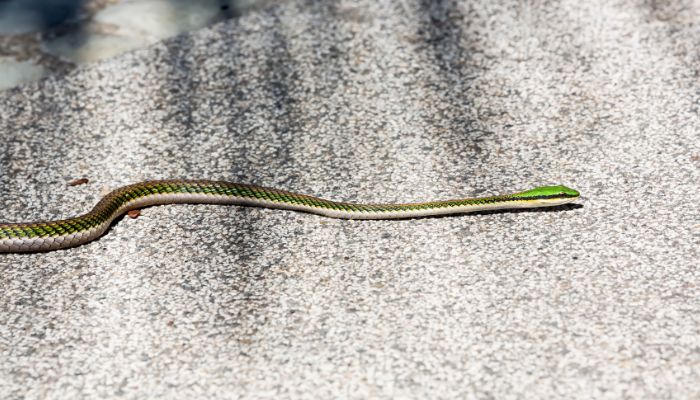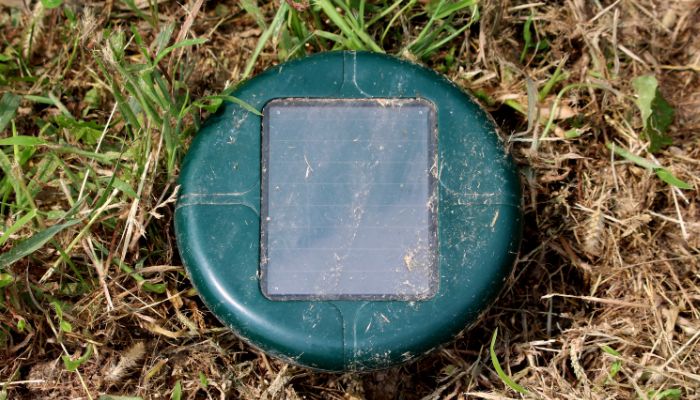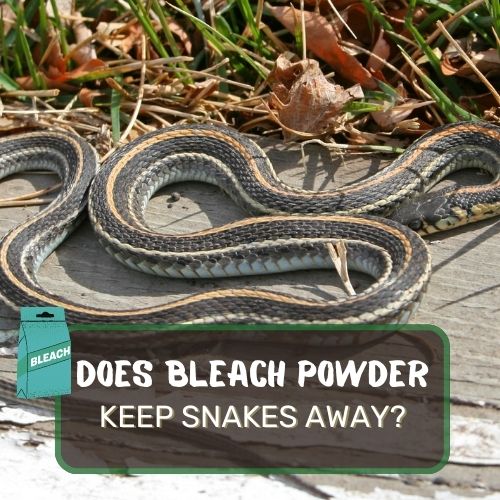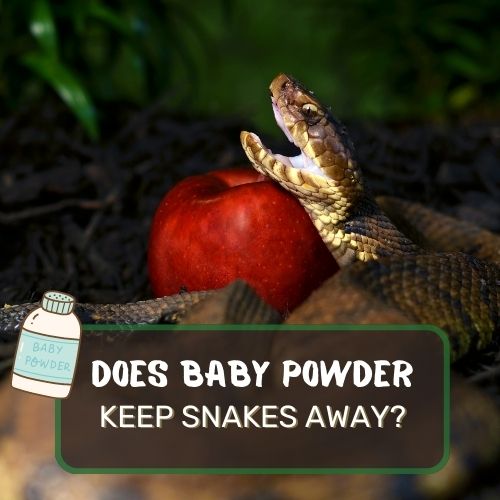
“Does human urine keep snakes away?”
It’s a question that has intrigued many, from campers and gardeners to those simply curious about the mysteries of nature.
In this article, we delve deep into the relationship between snakes and the scent of human urine, exploring age-old beliefs and modern scientific findings.
We’ll examine the composition of urine, its historical use as a repellent, and how different snake species react to it.
Additionally, we’ll uncover alternative methods of keeping these slithering creatures at bay.
By the end of this read, you’ll have a comprehensive understanding of the effectiveness of human urine as a snake deterrent and gain insights into safer and more reliable methods to ensure a snake-free environment.
Table of Contents
- 1 Does human urine repel snakes? (Short Answer)
- 2 Urine as a popular method of repelling snakes
- 3 What is Urine and How Does It Work?
- 4 How Do Snakes React to Urine?
- 5 Natural Predators of Snakes and Urine Repellent
- 6 Does Human Urine Repel Snakes?
- 7 Other Animal Urine Repellents for Snakes
- 8 Commercial Snake Repellents and Urine Components
- 9 Safety Concerns of Using Urine as a Snake Repellent
- 10 Conclusion
- 11 FAQ
Does human urine repel snakes? (Short Answer)
Human urine’s effectiveness as a snake repellent is a topic of debate. While some anecdotal evidence suggests that certain snake species, like rattlesnakes, might be deterred by the scent of human urine, there isn’t conclusive scientific proof to back this claim. Moreover, other species, such as garter snakes, might be indifferent or even attracted to it. The strong odor of urine could potentially deter snakes due to their keen sense of smell, but its efficacy is inconsistent. It’s essential to approach this method with caution and consider more reliable alternatives for snake deterrence.
Urine as a popular method of repelling snakes

Picture this:
You’re out camping with friends, and as you set up the tent, someone suggests sprinkling urine around the campsite to keep snakes at bay.
Sounds bizarre, right?
But believe it or not, this is a piece of advice that’s been handed down through generations. The big question is, does it hold any water (pun intended)?
What is Urine and How Does It Work?

Definition of urine
Let’s start with the basics. Urine isn’t just that thing you want to get rid of after having one too many drinks. It’s a liquid by-product of the body, specifically the kidneys, as they filter out excess waste and water.
Composition of urine: urea, creatinine, uric acid, and electrolytes
Dive a bit deeper, and you’ll find that urine is a cocktail of various compounds. Urea, creatinine, and uric acid are the main organic solutes.
But wait, there’s more!
Electrolytes like sodium and potassium also make an appearance, giving urine its characteristic salty taste (not that you’d want to taste it, but just so you know).
Historical use of urine as a repellent for various animals
Now, here’s where it gets interesting. Our ancestors were quite the innovators. They didn’t have the luxury of popping into a store to buy repellents.
So, they turned to what was readily available: urine. It’s been used as a deterrent for various animals, not just snakes.
The strong odor of urine, especially when concentrated, can be off-putting for many creatures. Imagine someone blasting music you absolutely hate – that’s how some animals feel about the smell of urine.
But while this method might have been popular historically, does it stand up to modern scrutiny? And more importantly, would you be willing to give it a try on your next camping trip?
How Do Snakes React to Urine?

Ever wondered how snakes feel about that morning pee? Well, it’s a bit complicated.
Different reactions of snake species to urine
Just like humans have varied tastes in music, snakes have varied reactions to urine. Some might turn their noses up (or whatever the snake equivalent is) and slither away, while others might be curious enough to come closer.
Mention of rattlesnakes being deterred by human urine and garter snakes being attracted to it
Take the rattlesnake, for instance. These guys, with their menacing rattles and venomous bite, seem to be put off by the smell of human urine.
So, if you’re in rattlesnake territory, maybe that old camping trick has some merit. But then there’s the garter snake, a friendly garden visitor.
Oddly enough, they seem to be drawn to the scent. It’s like how some of us love the smell of freshly baked cookies, while others can’t stand it.
General avoidance of strong odors by snakes
But one thing’s consistent: most snakes aren’t fans of strong odors. Their world revolves around their keen sense of smell.
Overpowering scents, like that of concentrated urine, can be disorienting and unpleasant for them. It’s like walking into a room where someone’s sprayed way too much perfume.
Natural Predators of Snakes and Urine Repellent

Snakes might be at the top of your “do not want” list, but in the animal kingdom, they’re a hot commodity.
List of natural predators: hawks, owls, foxes, bobcats, raccoons, skunks, opossums, and other snakes
Imagine being a snake, sunbathing, and suddenly a hawk swoops down, or a sly fox sneaks up. It’s a tough world out there.
Hawks, owls, foxes, bobcats, raccoons, skunks, opossums, and even other snakes have snakes on their menu. It’s like a never-ending game of predator and prey.
The role of smell in locating prey
For many of these predators, their sense of smell is their GPS. It guides them to their next meal. A snake, trying to stay off the menu, would want to be as inconspicuous as possible.
Potential deterrence of predators by urine
This is where urine comes into play again. The strong scent of urine can mask the snake’s natural odor, making it harder for predators to locate them.
It’s like a stealth mode for snakes. So, while urine might deter the snake itself, it could also be helping it stay hidden from its natural predators. Talk about a double-edged sword!
Does Human Urine Repel Snakes?

Alright, let’s address the elephant (or should I say snake?) in the room. Does sprinkling your own personal brand of liquid gold actually keep these slithering creatures at bay?
Effectiveness and reliability of human urine as a repellent
The idea behind using urine as a repellent is that its strong odor might deter snakes. And to some extent, it does. As we discussed earlier, rattlesnakes seem to be put off by it. But here’s the catch: it’s not a one-size-fits-all solution.
While it might deter some snakes, others might not be bothered at all. And remember our friendly garter snakes? They might just come over to say hello.
Challenges: evaporation, the attraction of other predators
Now, even if you decide to give it a shot, there are some challenges. First, urine evaporates. This means its scent will diminish over time, reducing its effectiveness. You’d have to keep reapplying, which, let’s be honest, isn’t the most pleasant task.
Secondly, while you might be repelling snakes, you could be rolling out the welcome mat for other animals. Rodents, for instance, might be attracted to the scent. And where rodents go, snakes often follow. It’s a bit counterproductive, don’t you think?
Other Animal Urine Repellents for Snakes

So, if human urine is a mixed bag, what about other animals? Could their urine be the secret weapon we’ve been looking for?
List of other animal urines: coyote, fox, bobcat, skunk, domestic cat, mongoose, and dog
Each of these animals has its own unique scent profile. Coyotes, with their wild diet, have a strong-smelling urine that’s believed to deter many snake species.
Foxes, being cunning predators, have a urine scent that signals danger to snakes. Bobcats, skunks, domestic cats, mongooses, and even dogs – each of their urines has been touted as a potential snake repellent at some point.
Effectiveness of each type of urine against specific snake species
But again, it’s not a universal solution. Coyote urine might be effective against rattlesnakes but less so against, say, a king snake. Bobcat urine might send a garter snake slithering in the opposite direction but attract a curious python.
The key is understanding the specific snake species you’re dealing with and then choosing the right repellent. It’s a bit like choosing the right wine for a meal – it requires a bit of knowledge and experimentation.
Commercial Snake Repellents and Urine Components

If the idea of collecting and sprinkling urine around your property doesn’t appeal to you (and let’s face it, it’s not the most glamorous of tasks), you might be considering commercial snake repellents. But what’s in these products, and do they actually work?
Components derived from animal urines in commercial repellents
Many commercial snake repellents tap into the power of animal urine. They contain components derived from the urines of predators like coyotes, foxes, and bobcats. The idea is simple: if a snake smells the presence of a predator, it’s more likely to steer clear.
Synergistic effects with other ingredients
But it’s not just about the urine. These repellents often combine urine-derived components with other ingredients, like essential oils or sulfur.
This creates a synergistic effect, where the combined ingredients are more effective than each one on its own. Think of it as a team where each player brings a unique skill to the table, making the group stronger.
Safety Concerns of Using Urine as a Snake Repellent

While using urine, whether human or animal, might seem like a natural solution, it’s essential to be aware of the potential risks.
Risks associated with using urine: attracting predators, contamination
As we’ve touched on before, while urine might deter snakes, it could attract other unwanted guests. Rodents, for instance, might be drawn to the scent.
And with rodents come snakes, creating a vicious cycle. Additionally, urine can contaminate water sources, posing a risk to both humans and wildlife.
Health concerns: skin irritation, infections
Direct contact with urine, especially if it’s not your own, can lead to skin irritations. There’s also the risk of infections.
Bacteria thrive in urine, and if it comes into contact with open wounds, it can lead to infections. Always handle with care and ensure you wash your hands thoroughly after any contact.
Conclusion
In our journey to understand whether human urine repels snakes, we’ve delved deep into the world of animal behaviors, scents, and natural deterrents.
While animal urines, including our own, have shown some promise in keeping snakes at bay, their effectiveness varies based on the snake species and the type of urine used.
It’s clear that while urine might offer a temporary solution, it’s not the most reliable or practical method out there.
With the myriad of alternative methods available, from natural barriers like fences and marigolds to commercial repellents and professional services, there’s no shortage of ways to keep your property snake-free.
As always, it’s essential to approach the situation with caution, respect for wildlife, and a preference for humane solutions.
FAQ
What smell do snakes hate?
Snakes have a keen sense of smell, and they tend to avoid strong, overpowering odors. Scents like ammonia, garlic, and certain essential oils, such as clove and cinnamon, are known to be repulsive to many snake species.
Does baby powder keep snakes away?
There’s a popular belief that the fine texture of baby powder can deter snakes. The idea is that the powder disrupts their ability to move smoothly. However, there’s limited scientific evidence to support this claim. While it might act as a minor deterrent, it’s not a foolproof method.
What animals are deterred by human urine?
Apart from some snake species, other animals like deer, raccoons, and even some insects might avoid areas marked with human urine. However, it’s worth noting that the scent might also attract certain animals, especially those curious about the source or those considering it as a potential food indicator (like rodents).




0 Comments